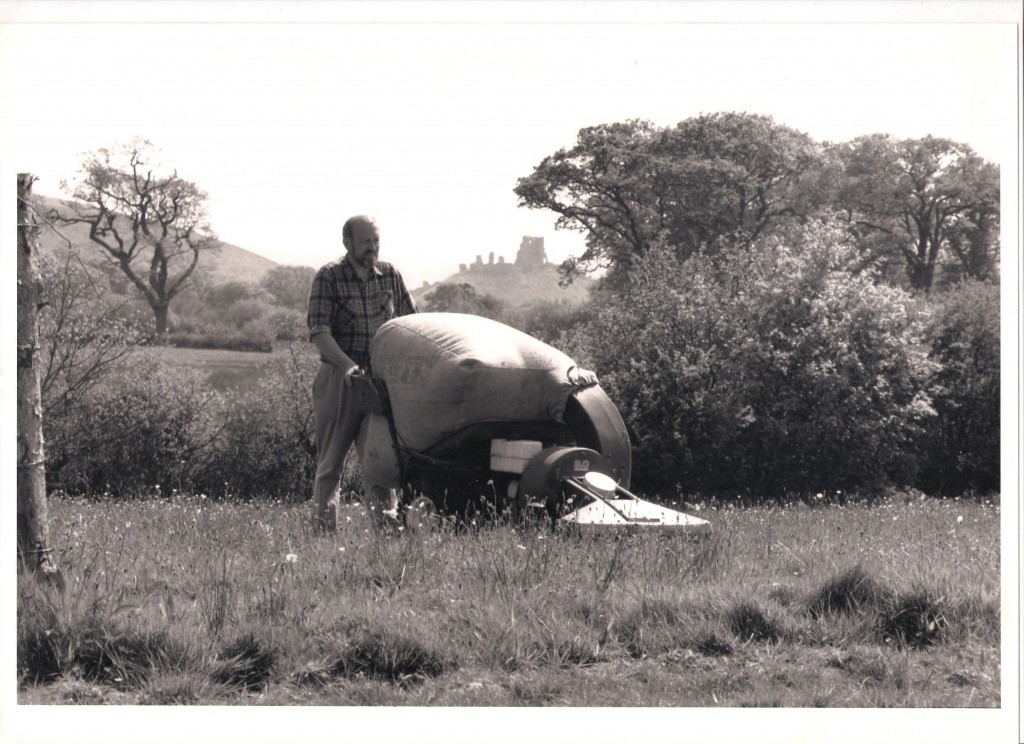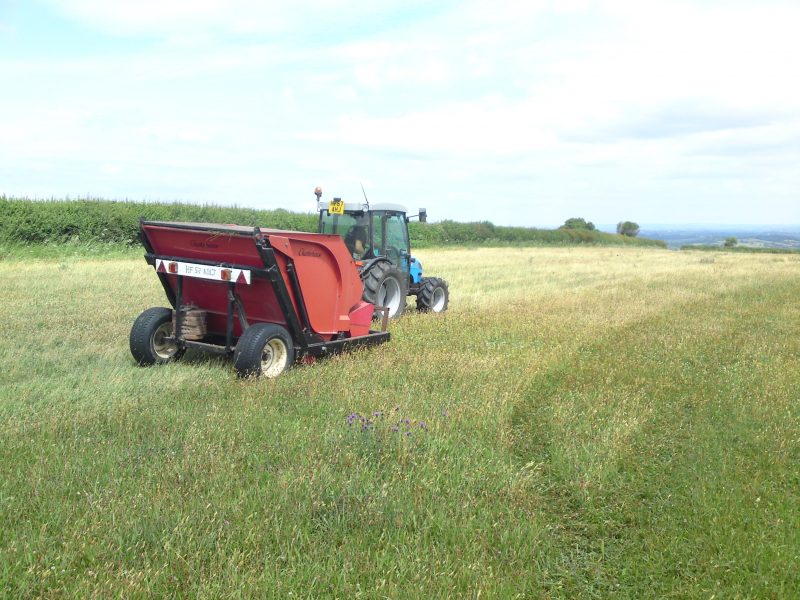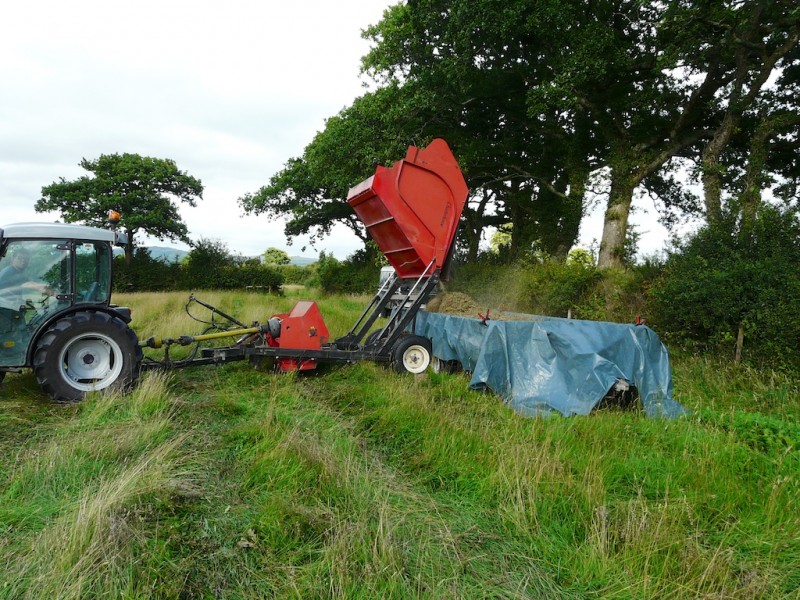Heritage Seeds have been brush harvesting from heathland and grassland communities since the mid-eighties, our first contract was an oil pipe-line crossing several SSSI’s in Dorset. We started using vacuum machines but quickly adapted and now use low impact brush harvesters. Click here for details of the sites we currently harvest.

Local Provenance Seed Collection The process:
The donor site
We look for a site free from noxious weeds and improvement by over-seeding; In practice most grassland has been historically over-seeded to boost productivity, this normally means using Rye Grass and Clover. The most valuable communities are normally steeply sloping or have poor access.

Collecting the seed
We have developed light and low impact machines , with hydraulically adjustable headers, these allow us to follow contours and changes in sward height whilst avoiding ant communities and scrub that are common on most sites.
Each machine has a curtain to exclude invertebrates.
Our latest innovation is a hydraulically powered head, this allows us to instantly stop or reverse the header similarly to a modern combine harvester, this allows is to rouge out any docks or thistles that are in the sward but switching the header off while it passes over any plants that we want to exclude.

Cooling and drying
The seed is cooled using forced air and taken to our farm, here it is fully cooled and dried carefully, this first 48 hour period being crucial to the viability of the seed.
Threshing
Once dry, the material is threshed using a closed loop system, this allows us to make sure we keep all of the seed collected.
Cleaning and Storage
The seed is then cleaned through several stages and refrigerated, to retain viability. Seed for civil engineering projects such as pipeline restoration benefit from these controlled conditions and this greatly improves the storage life and viability of harvested seed.
Analysis
The representation of species from each lot of clean seed is recorded , this helps monitoring of the development of each site and economic sowing of the seed.
